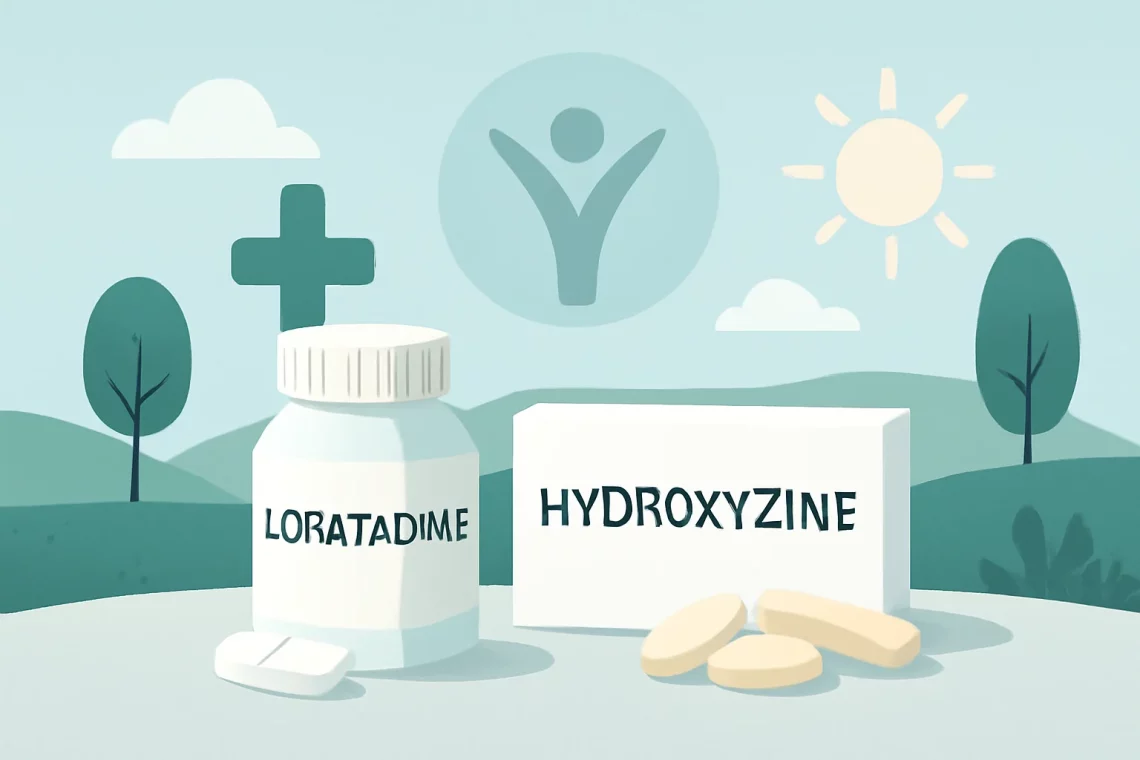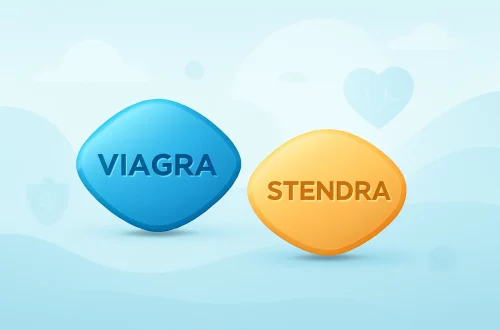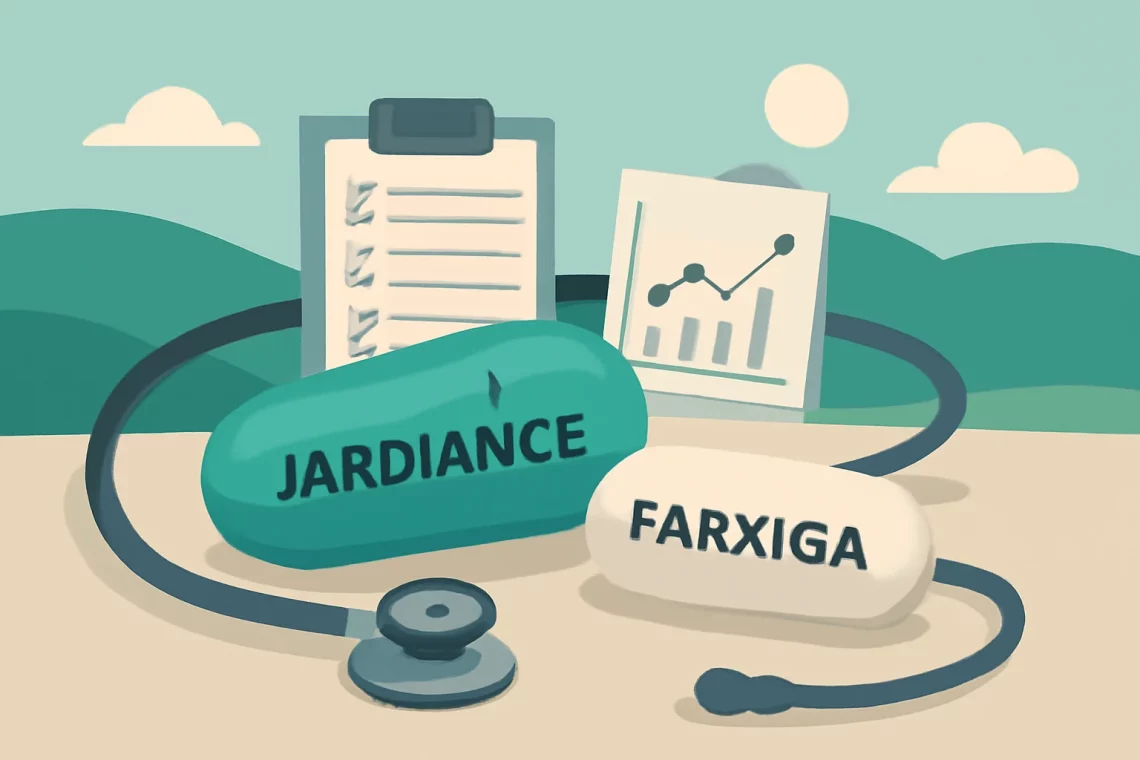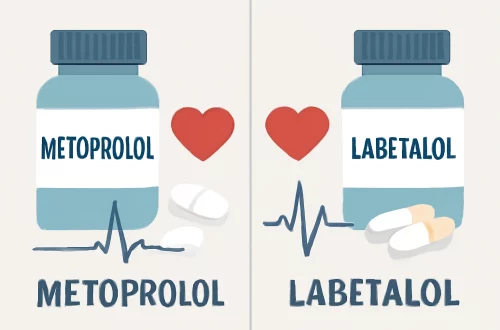-
Amoxicillin vs Omnicef: Which Antibiotic Is Right for You?
Amoxicillin and Omnicef are two antibiotics that have gained significant attention in medical discussions due to their effectiveness in treating various bacterial infections. Both medications belong to different classes of antibiotics, which means they operate through unique mechanisms to combat bacteria. The choice between Amoxicillin and Omnicef often depends on the specific type of infection, the patient’s medical history, and the potential for antibiotic resistance. Understanding how these medications work, their spectrum of activity, side effects, and the situations in which they are best prescribed can help patients and healthcare providers make informed decisions. With the rise of antibiotic resistance, choosing the appropriate antibiotic is more crucial than ever. Both…
-
Spironolactone vs Eplerenone: Which is Right for You?
Spironolactone and eplerenone are two medications that play significant roles in the management of various medical conditions, particularly those related to cardiovascular health and fluid retention. They belong to a class of drugs known as aldosterone antagonists, which are primarily used to treat conditions such as hypertension, heart failure, and certain hormonal disorders. Both of these medications work by inhibiting the effects of aldosterone, a hormone that regulates sodium and water balance in the body, leading to increased excretion of sodium and water while retaining potassium. Understanding the differences and similarities between spironolactone and eplerenone can be crucial for patients and healthcare providers alike. While they share a common mechanism…
-
Duloxetine vs Venlafaxine: Which Antidepressant is Right for You?
Duloxetine and venlafaxine are two medications commonly used to treat various mental health conditions, particularly depression and anxiety disorders. Both belong to the class of drugs known as serotonin-norepinephrine reuptake inhibitors (SNRIs), which work by increasing the levels of certain neurotransmitters in the brain. These medications are often prescribed when patients do not respond to selective serotonin reuptake inhibitors (SSRIs) or when their symptoms require a broader approach to treatment. The choice between duloxetine and venlafaxine can be challenging for both healthcare providers and patients. Factors such as the specific symptoms being treated, the side effect profiles of the medications, and individual patient responses can all influence this decision. Additionally,…
-
Lurasidone vs Quetiapine: Which Antipsychotic is Right for You?
Lurasidone and Quetiapine are two atypical antipsychotic medications that are commonly prescribed for various mental health conditions. Both medications have gained recognition for their efficacy in treating disorders such as schizophrenia and bipolar disorder. However, they differ in their pharmacological profiles, side effects, and patient experiences. As mental health awareness continues to grow, understanding these medications becomes crucial for individuals seeking effective treatments. The choice between Lurasidone and Quetiapine may depend on various factors including the specific diagnosis, patient history, and individual response to treatment. In recent years, the dialogue surrounding mental health has evolved, encouraging open conversations about the importance of medication in managing symptoms. Patients and healthcare providers…
-
Viagra vs Stendra: Which ED Treatment is Right for You?
Erectile dysfunction (ED) is a common condition that affects men of all ages, and it can have a significant impact on relationships and overall quality of life. As more men seek solutions to this issue, medications like Viagra and Stendra have become widely recognized for their effectiveness in treating ED. Both of these medications belong to a class of drugs known as phosphodiesterase type 5 (PDE5) inhibitors, which work by increasing blood flow to the penis in response to sexual stimulation. Despite their similar mechanisms of action, there are notable differences between Viagra and Stendra that can influence a patient’s choice. Understanding these differences, including their effectiveness, side effects, and…
-
Loratadine vs Hydroxyzine: Which Allergy Medication Is Right for You?
Loratadine and hydroxyzine are two widely used antihistamines that serve different purposes in the realm of allergy and anxiety treatment. As individuals seek relief from allergic reactions, hay fever, or anxiety, understanding the differences and similarities between these two medications becomes crucial for making informed decisions. Both drugs are effective in alleviating symptoms associated with allergies, but their mechanisms of action, side effects, and usage guidelines vary significantly. While loratadine is often preferred for its non-drowsy effects, hydroxyzine is known for its sedative properties and is frequently used in cases where anxiety relief is also needed. This article aims to explore the characteristics, uses, and potential side effects of each…
-
Lisinopril vs Valsartan: Which Medication is Right for You?
The management of hypertension and heart-related conditions is critical in promoting overall wellness. Among the various pharmacological agents available, Lisinopril and Valsartan are two commonly prescribed medications that have garnered significant attention. Both drugs are utilized for treating high blood pressure and heart failure, yet they belong to different classes and operate through distinct mechanisms. Understanding the nuances of these medications can empower patients and healthcare providers to make informed decisions regarding treatment options. Lisinopril is an angiotensin-converting enzyme (ACE) inhibitor, while Valsartan is classified as an angiotensin II receptor blocker (ARB). The differences in their mechanisms of action can influence their efficacy, side effects, and overall patient experience. Furthermore,…
-
Jardiance vs Farxiga: Which Diabetes Medication is Right for You?
In the ever-evolving landscape of diabetes management, two medications have emerged as prominent players: Jardiance and Farxiga. Both of these drugs belong to a class known as SGLT2 inhibitors, which work by helping the kidneys eliminate excess glucose through urine. As diabetes rates continue to soar globally, the importance of effective treatment options cannot be overstated. Patients and healthcare providers alike are constantly seeking the most effective and convenient medications to manage blood sugar levels while minimizing side effects. Jardiance and Farxiga not only help in controlling diabetes but also offer additional benefits, such as weight loss and cardiovascular protection. However, the choice between these two medications can be daunting…
-
Rosuvastatin vs Atorvastatin: Which Statin is Right for You?
The management of cholesterol levels has become a cornerstone of cardiovascular health. With the increasing prevalence of heart disease, individuals are often seeking effective ways to manage their lipid profiles. Among the most commonly prescribed classes of medication for this purpose are statins, which include popular options like Rosuvastatin and Atorvastatin. Both drugs have been extensively studied and are known for their ability to lower low-density lipoprotein (LDL) cholesterol, often referred to as “bad” cholesterol. The significance of maintaining optimal cholesterol levels cannot be overstated, as it plays a critical role in preventing heart attacks and strokes. Despite their similar purposes, Rosuvastatin and Atorvastatin differ in their mechanisms of action,…
-
Lisinopril vs Captopril: Which ACE Inhibitor Is Right for You?
Lisinopril and captopril are two widely used medications for managing hypertension and heart failure. Both belong to a class of drugs known as angiotensin-converting enzyme (ACE) inhibitors, which play a crucial role in regulating blood pressure and fluid balance in the body. While they share some similarities in mechanism and purpose, there are significant differences in their pharmacokinetics, side effects, and overall efficacy. Understanding these differences is essential for patients and healthcare providers alike, as the choice between the two can significantly impact treatment outcomes. As we delve deeper into the characteristics of lisinopril and captopril, we will explore their mechanisms of action, common uses, potential side effects, and considerations…







































